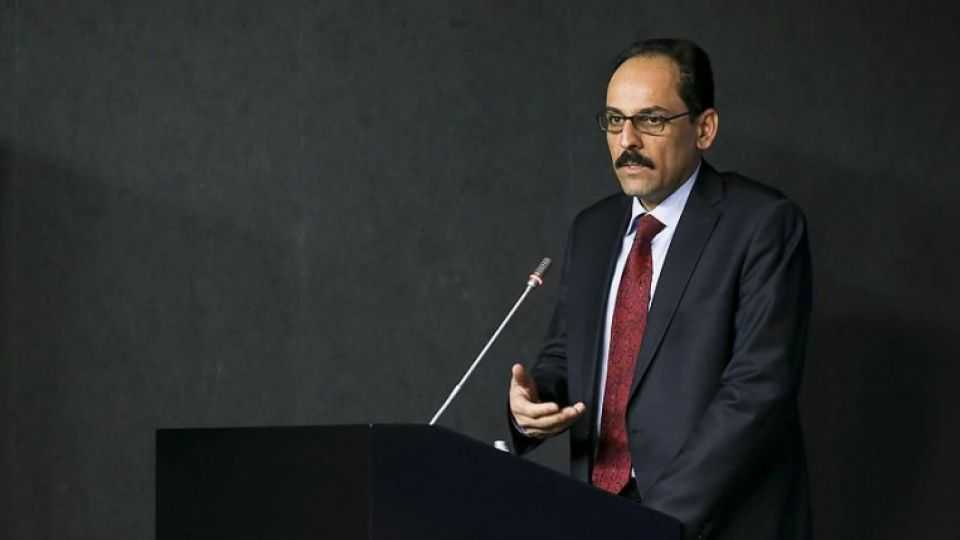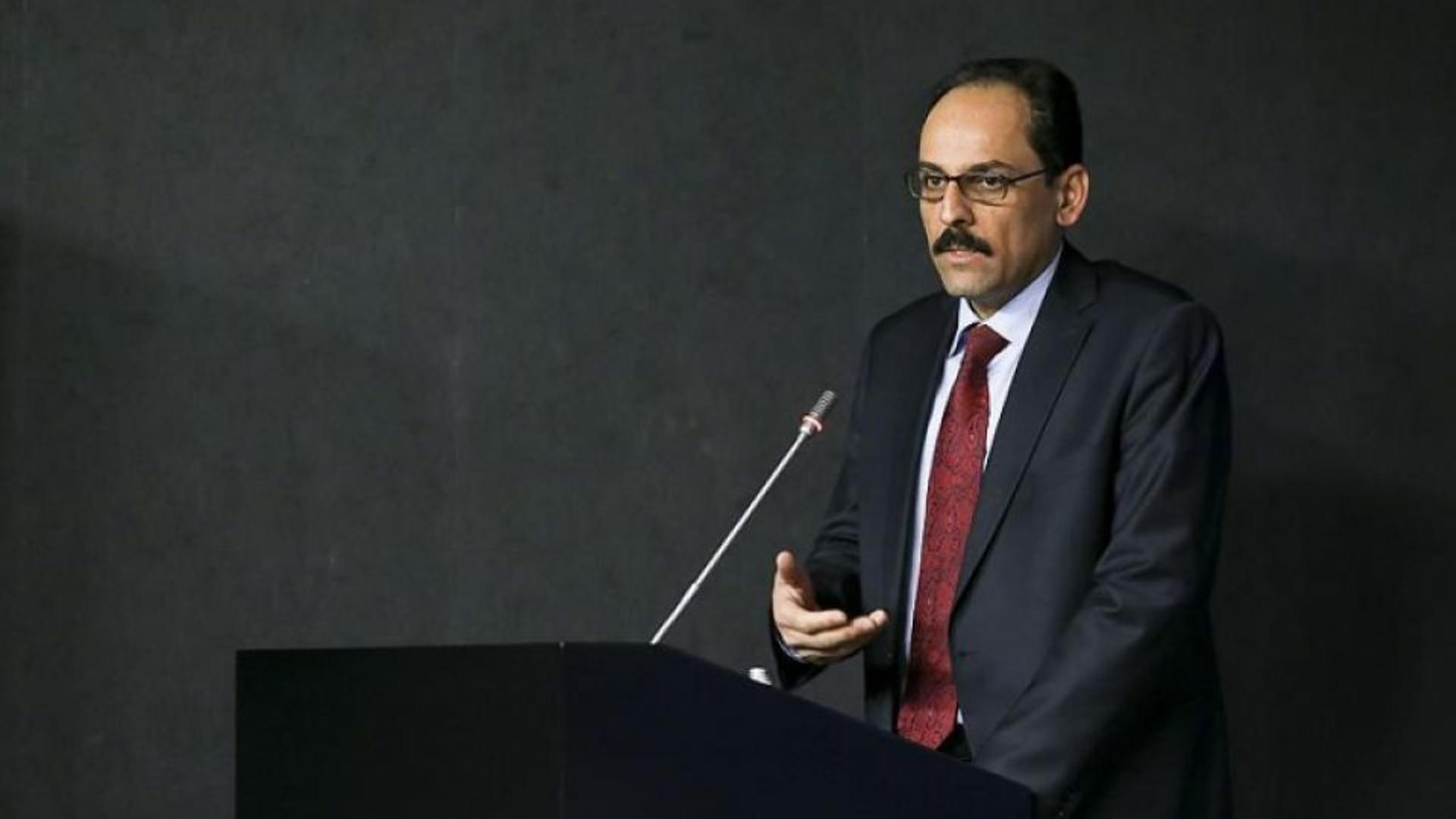
Turkish presidential spokesman Ibrahim Kalin has called for a new approach in the anti-DAESH strategy, which would enable Muslim and Western countries to work together.
Addressing the conference titled “Rethinking Violent Extremism in the MENA Region” in Istanbul Saturday, Kalin said, “The current strategy, which has focused primarily on air strikes on DAESH targets in Syria and Iraq, has failed to stop the terrorist group from striking in Syria, Turkey, Europe and the US.”
Kalin said the war in Syria feeds DAESH and other terrorist groups. “The longer we let this war continue, the deadlier DAESH terrorism will become. DAESH reached its current level of network and impact primarily because of the war in Syria and Iraq,” he said.
According to Kalin, there are no good or bad terrorists.
“Regardless of ethnic, religious or political motives, terrorism is terrorism everywhere. It is neither logical nor moral to treat DAESH as a terrorist organization that struck in Paris and Brussels, but not the PKK that struck in Ankara twice over the last two months,” he said.
He highlighted that PKK terrorism could not be justified in the name of fighting against DAESH in Syria.
“As the recent Ankara and Istanbul attacks show, DAESH and the PKK, although coming from opposite ideological-political backgrounds, are united in their terrorism directed at Turkey,” Kalin said.
DAESH has been linked to a number of other suicide bombings in Turkey.
In addition to the Jan. 12 Sultanahmet blast that claimed the lives of 12 German tourists, the group also carried out the March 19 attack in Istanbul, which killed three Israelis and an Iranian.
The last blast in Istanbul also injured 45 others. The bomber was identified by authorities as Mehmet Ozturk, who was born in the southeastern Gaziantep province in 1992. Ozturk is suspected of having links with DAESH.
Also, 103 people were killed in the October 2015 attack on a rally in the capital Ankara.
“Violent extremism is global phenomenon”
Kalin also said that violent extremism is a global phenomenon, which has many causes, including religious, secular or nationalistic ideas.
“There is more than one reason for the emergence of violent extremism and we need to adopt an integrated approach to understand its causes and operate at several levels to contain and prevent it,” he said.
He said fighting against them would require a battle of ideas where attempts to justify terrorist methods get rejected based on authentic and authoritative sources.
“In the case of DAESH, Muslim scholars and religious leaders have debunked its extremist ideology and shown the fallacy of their logic,” he said.
Noting that DAESH terrorists and others are using the Syrian war to spread their extremist ideology and recruit new members, Kalin said, “Caught in between violent extremism and anti-Muslim racism, ordinary Muslims are victimised twice.
“They suffer from the brutal attacks of ISIS [DAESH] in places like Syria and Iraq as DAESH has killed far more Muslims than non-Muslims. On the other hand, the Islamophobes, who use DAESH terrorism to make cheap political points on the anti-Muslim wave, subject ordinary Muslims to discrimination.”
Kalin said blaming others did not solve problems; rather, it led to intellectual laziness and moral conformism.
“It is meaningless to blame the West or the international system for the ill fortunes of the Muslim world without first stopping the internal bleeding in Muslim societies,” he added.










Discussion about this post